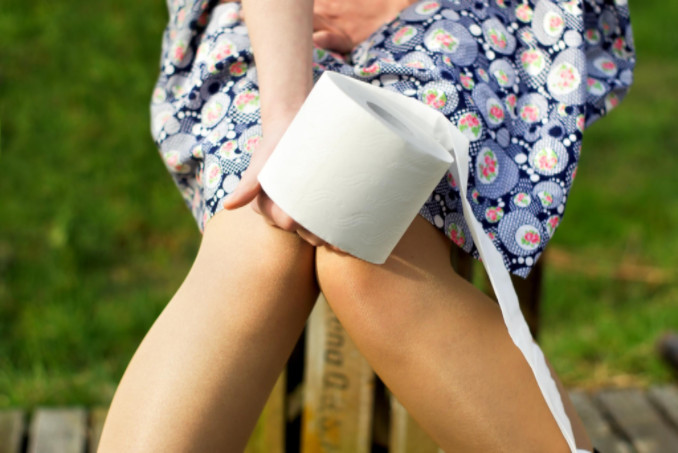
As a new mom, you might find that you need to change your pants after every sneeze or cough. Or maybe you simply can’t make it to the bathroom fast enough. If so, you’re probably one of the many women dealing with postpartum urinary incontinence.
It’s estimated that up to 50% of women struggle with some type of urinary incontinence following pregnancy. The leaking often improves within a year of giving birth, but for close to half of that 50% it continues to be a problem.
What causes the loss of bladder control after pregnancy?
The main culprits of postpartum incontinence are a stretched bladder and weak pelvic floor muscles. They’ve just helped to carry your baby for 10 months and then took another beating during delivery. Your muscles can heal and regain strength, but it takes time.
Like any other postpartum issues, hormones also play a role in urinary incontinence. Certain hormones present during pregnancy loosen your stomach muscles, allowing them to stretch more, which also loosens your bladder muscles.
What can I do to regain control of my bladder?
One of the best ways to combat urinary incontinence is to do daily Kegel exercises. Just like any other muscle, it takes time and regular exercise to re-strengthen your bladder muscles.
Some other things that can help with postpartum urinary incontinence are:
- Drinking lots of water. This may seem counterproductive, but your body needs water to avoid other problems like constipation and urinary tract infections (UTIs). Both of these issues can make incontinence even worse.
- Avoiding sodas, coffee, tea and alcohol. These types of drinks can put more stress on your bladder, thus making it harder to control.
- Retraining your bladder. Try to pee at certain intervals (once every 30 minutes to an hour) and then extend the time between trips to the bathroom a little every day. Even if you don’t feel the need to go, you’ll train your bladder to hold in urine for longer periods of time.
If urinary incontinence has become an ongoing issue, understand that it’s not something you “just have to live with.” If you’re suffering from postpartum urinary incontinence, talk to your OB/GYN about treatment options.
If you live near Gainesville or Lake City, and are suffering from urinary incontinence or another common post-pregnancy health problem, schedule an appointment to see one of our compassionate well-woman care physicians.


